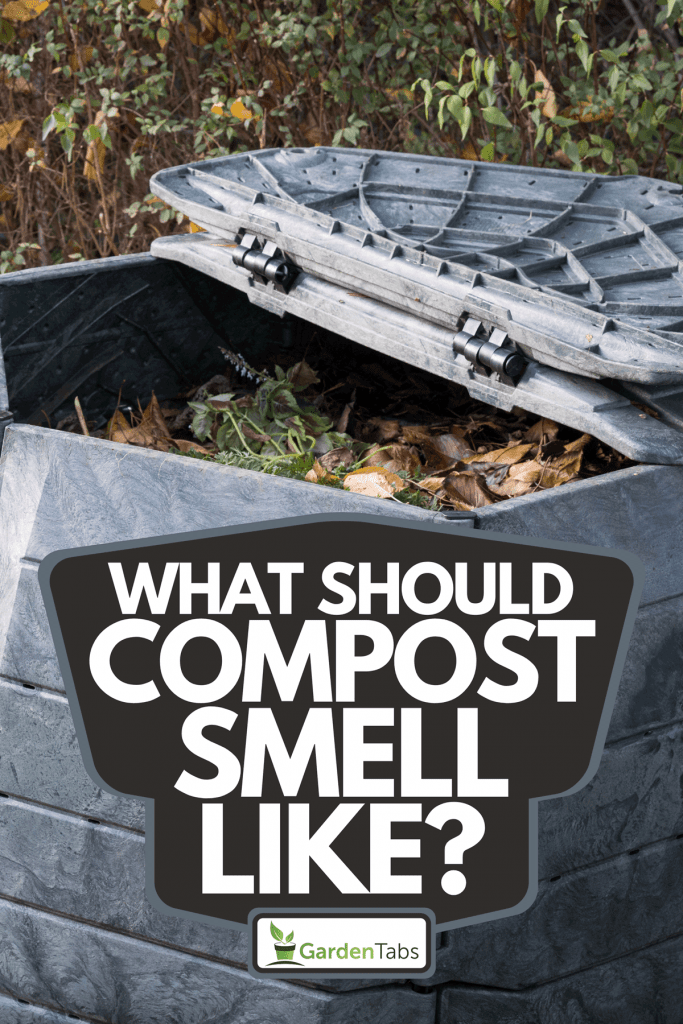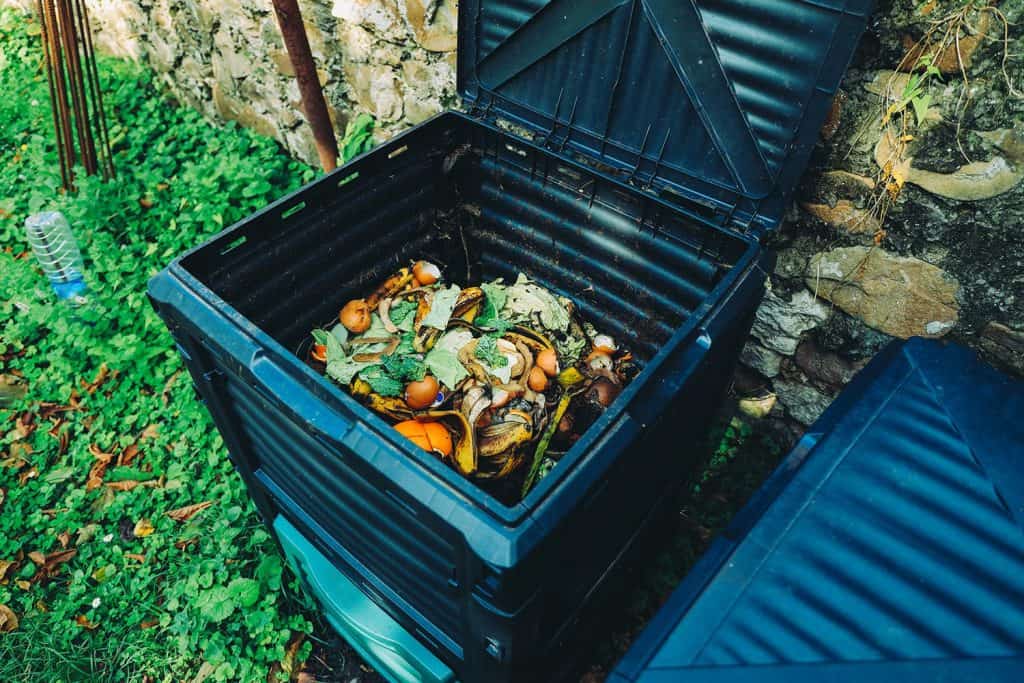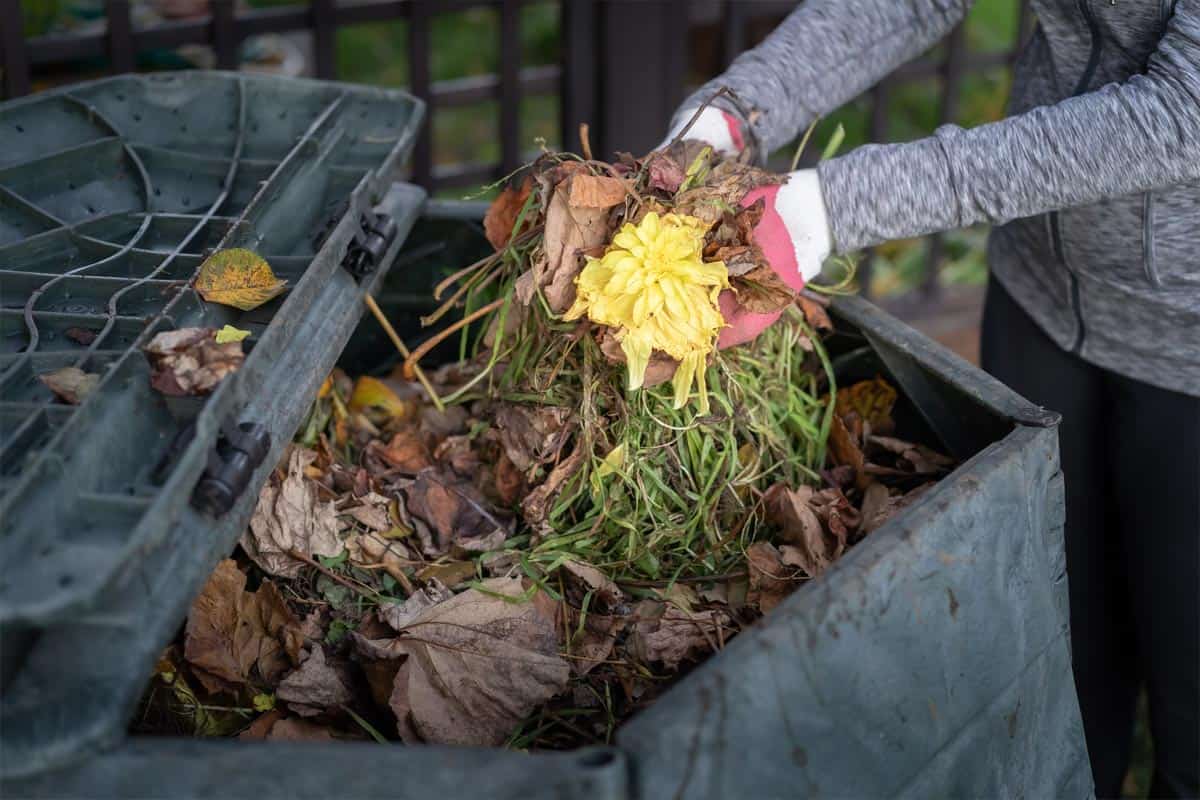Crafting your own compost is a delightfully rewarding journey. But beware, while some plant-friendly elements may not tickle your olfactory senses, your compost shouldn't reek.
So, what's the aromatic fingerprint of a healthy compost? We've done a deep dive into the scents that seasoned gardeners pick up from their compost piles to enlighten you further.
In a thriving compost pile, your waste undergoes a natural transformation and should emit a subtle, earthy aroma when it's ready for use.
A compost heap isn't a stage for putrid, flesh-rotting odors, overpoweringly unpleasant or anything that could mimic a horror movie setting. If your compost's scent scale tips more towards noxious than earthy, it's a sign that trouble's brewing.
Remember, a compost pile should never smell like a dirty restroom.
So, let's explore the gratifying world of composting, transforming your everyday kitchen leftovers into a vibrant, nourishing treat for your plants.
You'll also discover how to keep your compost pile radiating fresh, earthy, and healthy vibes, ready for your garden's ultimate benefit.

The Sweet Smell Of Compost
A good mixture for compost should balance green and brown elements, and it should be moist but not overly wet. When compost is balanced and progressing along nicely, it should have a light, earthy scent that isn't unpleasant or rank.
However, when compost smells more putrid than peaty, it's a sign that something is amiss. Consider the following if you think your compost smells bad and seek to correct the problem:
- Too much nitrogen from an imbalanced mix of green items overtaking brown items. Solution: Balance the mixture.
- Adding meat, dairy, human waste, animal waste, treated sawdust, oils, diseased plants, and baked goods can cause odors. Solution: Do not add these items.
- There are maggots present in large numbers, leading to delay with the compost converting into good plant food. Solution: Dry out the compost.
- The compost has become compacted and is not properly layered. Solution: Turn the compost and adjust the layers. Add certain food waste to a lower level to reduce attractiveness to flies.
- The compost is too wet and not getting enough air. Solution: Reduce anaerobic bacteria that produce foul odors by drying out the compost.
Before you begin composting, get comfortable with which items are great for compost and what should be avoided.
You will want a good mix of brown and green materials to ensure the compost is moist, produces some heat, and breaks down the waste and scraps into gardener's gold.

Maintain A Balanced Mix
Choose brown, carbon-rich items such as straw, hay, shredded newspapers, shredded cardboard, toilet paper rolls, dry leaves, and grasses.
Be mindful of brown items that may contain harmful additives, coatings, inks, or agents that will not break down in compost.
Look for green, nitrogen-producing wet items such as used coffee grounds, tea, food scraps, and recently pulled weeds. Avoid adding foods that are very acidic, oily, or treated with harmful chemicals.
With patience and maintenance, you can get compost that is ready for use between three months and two years, depending on conditions. Some green thumbs enlist the help of worms or aerobic bacteria to help the compost develop faster.
Keeping compost damp but not overly soggy, introducing oxygen with frequent aeration, and supporting microorganisms helps speed the composting process.
What Does It Mean When Compost Smells Bad?
![Shredded vegetable and other elements inside a small compost bin, How To Compost In Florida [A Complete Guide]](https://gardentabs.com/wp-content/uploads/2021/08/Shredded-vegetable-and-other-elements-inside-a-small-compost-bin.jpg)
When compost smells bad, it is communicating to you specific problems that can be fixed. First off, one of the biggest issues with smelly compost is having too much moisture.
Make sure to occasionally turn compost and add a healthy balance of brown and green items. Too many green items lead to excess nitrogen being released and an ammonia smell.
Adding dairy, meat, oils, fats, and waste to compost will quickly lead to unpleasant odors and should be avoided.
Keep your compost as moist as a damp sponge, as too much water can prevent aeration and lead to smelly anaerobic bacteria. Compost will smell rank if you let it become compacted and fail to turn it often.
Don't necessarily keep compost in direct sunlight and support a healthy environment for the materials to break down.
How Do You Know If Compost Is Good?
You will know you have achieved a gold standard of compost if you note the following things:
- The compost should have a fine, crumbly texture.
- You are unable to see any identifying items that you added to the compost, and it has been converted to a dark, organic matter.
- The compost should smell similar to the earth on the forest floor and not be unpleasant or overpowering.
- There should be no signs of mold, rotting items, or anything foul about good compost that is ready for use.
Read more: Why Is My Compost Turning White?
How Do I Get Rid Of The Smell In My Compost Bin?
Composting should not leave your bin smelling foul. Feel free to move your compost out of the direct light of the sun. Add a bit of baking soda to your bin, and make sure to regularly turn your compost.
Compost that is overly wet, compacted, has too much green, nitrogen-producing materials, and doesn't get enough air will become smelly pretty quickly.
Consider adding some materials like grass clippings, dry leaves, or shredded brown paper to absorb excess water and maintain a balanced composition.
Ensuring compost gets enough oxygen will cut down on bad smells produced from anaerobic bacteria.
Check out this rotating compost bin on Amazon.
What Should You Do If Your Compost Pile Is Too Stinky?
Don't give up on your compost if you discover it is overly foul-smelling. Give your compost a turn or two and add some dried brown materials to balance it out.
Typically, compost may smell more stinky if it is too wet. It may give off an odor akin to rotten eggs and look slimy. Adding too many green items can create compost that has a higher than desirable moisture level.
There are a few reasons why your compost smells foul, aside from being too wet:
- The compost is not getting enough air, needs more turning, and is becoming rancid.
- The balance between carbon and nitrogen is off.
- There are too many green items and not enough brown. Reduce the water in your compost with shredded brown material.
- The addition of dairy, meat, oil, and specific items that do not do well in compost has been added.
Look out for compost that smells like ammonia, has a saccharine odor, smells like sulfur, or is rancid. The smell of ammonia is from the release of too much nitrogen.
If you are composting outside, you can spread the smelly pile in the sun to reduce the odor before replacing back in the bin. Make sure that your compost is layered well and not compacted.
Should Compost Be Wet Or Dry?

Developing compost is all about striking a balance, as it should not be too wet, too dry, too cold, or too hot. If compost becomes too dry, it will slow the process down.
Too much moisture is equally bad because it can trigger anaerobic conditions. Seek out composting materials that are between 40 to 60 percent water. Keep your compost mixed, routinely aerate it, add materials as needed, and keep it as moist as a dampened sponge.
Are Maggots Good In Compost?
If you are composting outdoors, chances are you might discover maggots along the process. Maggots are not necessarily a bad thing, as it's a sign that insects have chosen your compost to lay eggs.
However, too many maggots can be a problem, as an infestation is troublesome to resolve. Some maggots are normal in compost because these insects help break down dead and decaying matter.
If the sight of maggots is too much to handle, change the composition of your compost to make it drier and less friendly for the insects.
Add more brown materials like leaves, paper, cardboard, and grass. Add a mesh screen over holes to keep flies out, and bury your food scraps deeper to make your compost less attractive.
Do consider adding earthworms to help your compost along, and make sure to turn it and aerate it as needed.
Check out these worms for composting on Amazon.
In closing
We hope you leave filling more confident about cultivating rich, earthy-smelling compost. Struggling with strange, noxious odors can make composting a challenge, whether indoors or outdoors.
You can take steps to reduce bad odors, eliminate problems, and end up with compost that is nutritious and pleasant to your nostrils.
Avoid adding dairy, meat, animal waste, oils, or diseased plants to compost to prevent foul odors and unwanted bacteria. Be patient, engage your senses, and you will soon get the hang of understanding your compost and when it's ready for use.
Before you go, don't miss out on the following helpful articles:


